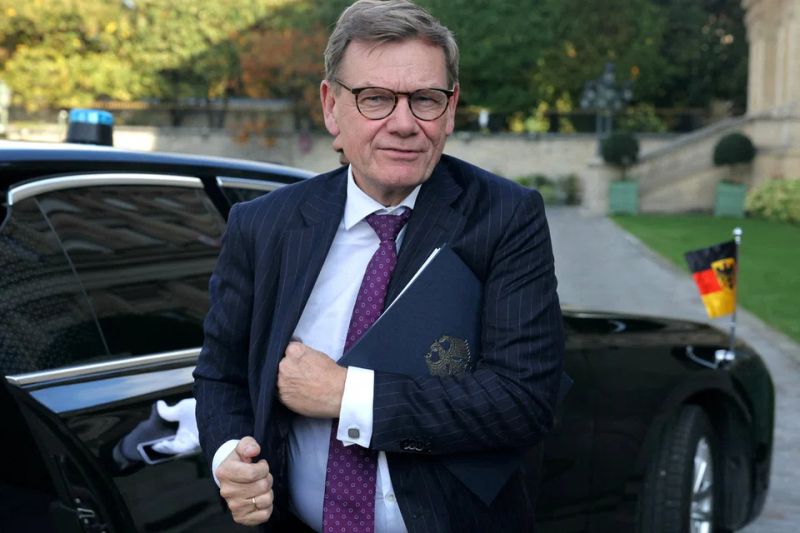
German-China Tensions Put EU Pork Duties on a Knife-Edge
Diplomatic Freeze in Beijing Puts Pressure on Europe's Meat Export Crisis
This week was supposed to be a key diplomatic moment: a chance for de-escalation. German Foreign Minister Johann Wadephul (CDU) was scheduled for crucial meetings with his Chinese counterpart, Wang Yi, in Beijing, following long-decided plans.
Instead, the trip was abruptly postponed at short notice.
This isn't a simple scheduling issue. The Chinese government confirmed only the meeting with Foreign Minister Wang Yi, failing to secure other necessary high-level appointments that would justify the visit. This sudden freeze signals a serious downturn in relations and underscores the growing list of greater and lesser disagreements between Germany, and by extension the European Union (EU), and China.
The context is toxic. Bilateral tensions have been mounting over Germany's "de-risking" strategy, its stance on Taiwan, and, most centrally, the increasingly acrimonious spat over Chinese ‘overcapacity’ in industrial goods and technology. European concerns about Chinese export restrictions, particularly on critical materials like rare earths and semiconductors, have dominated the political agenda.
A Collision of Priorities: Trade War Overshadows Pig Trade
This is bad news all round, but for the European meat industry, it bodes particularly ill.
While the diplomatic and technological wars rage, a different, more immediate threat looms for one of Europe's major agricultural sectors: EU pork.
The Chinese government is due to pronounce its final verdict in December in the long-running investigation into alleged dumping practices by EU pork producers. This process will determine whether and to what extent punitive tariffs will be finalized and at what level.
The current, temporary duties already being imposed on EU pork exports cover a wide and damaging range, roughly between 15% and 60%. A confirmation of high, permanent duties could effectively lock Europe's pork giants—particularly those in Spain, Germany, and the Netherlands—out of the world’s most important market.
The Pork Industry’s Voice is at Risk
In the context of high-stakes priorities—where Germany is focused on trade friction concerning semiconductors and the future of its industrial base—it will be profoundly challenging for German and EU pork producers to be heard.
European policymakers must fight a political battle over dumping duties while simultaneously managing a major diplomatic breakdown over industrial overcapacity and geopolitical issues. The cancellation of Minister Wadephul's trip means there is one less high-level opportunity to personally lobby Beijing before the December deadline.
The core message for the European meat industry is clear: political friction has immediate and severe business consequences. The strategic imperative for Germany and the EU is currently focused on the manufacturing and technology sectors; the danger is that the vital interests of the agri-food sector—and its massive financial exposure in the Chinese market—will become an unfortunate collateral casualty of a broader geopolitical standoff.
Sources
"Wadephul: Außenminister verschiebt China-Reise kurzfristig" (Handelsblatt) https://www.handelsblatt.com/politik/international/wadephul-aussenminister-verschiebt-china-reise-kurzfristig/100167722.html
"German foreign minister's China visit postponed amid tensions" (Euractiv) https://www.euractiv.com/news/german-foreign-ministers-china-visit-postponed-amid-tensions/
"Germany should rethink China strategy, lawmaker says, after German minister postponed trip" (The Straits Times) https://www.straitstimes.com/world/europe/germany-should-rethink-china-strategy-spd-lawmaker-says
